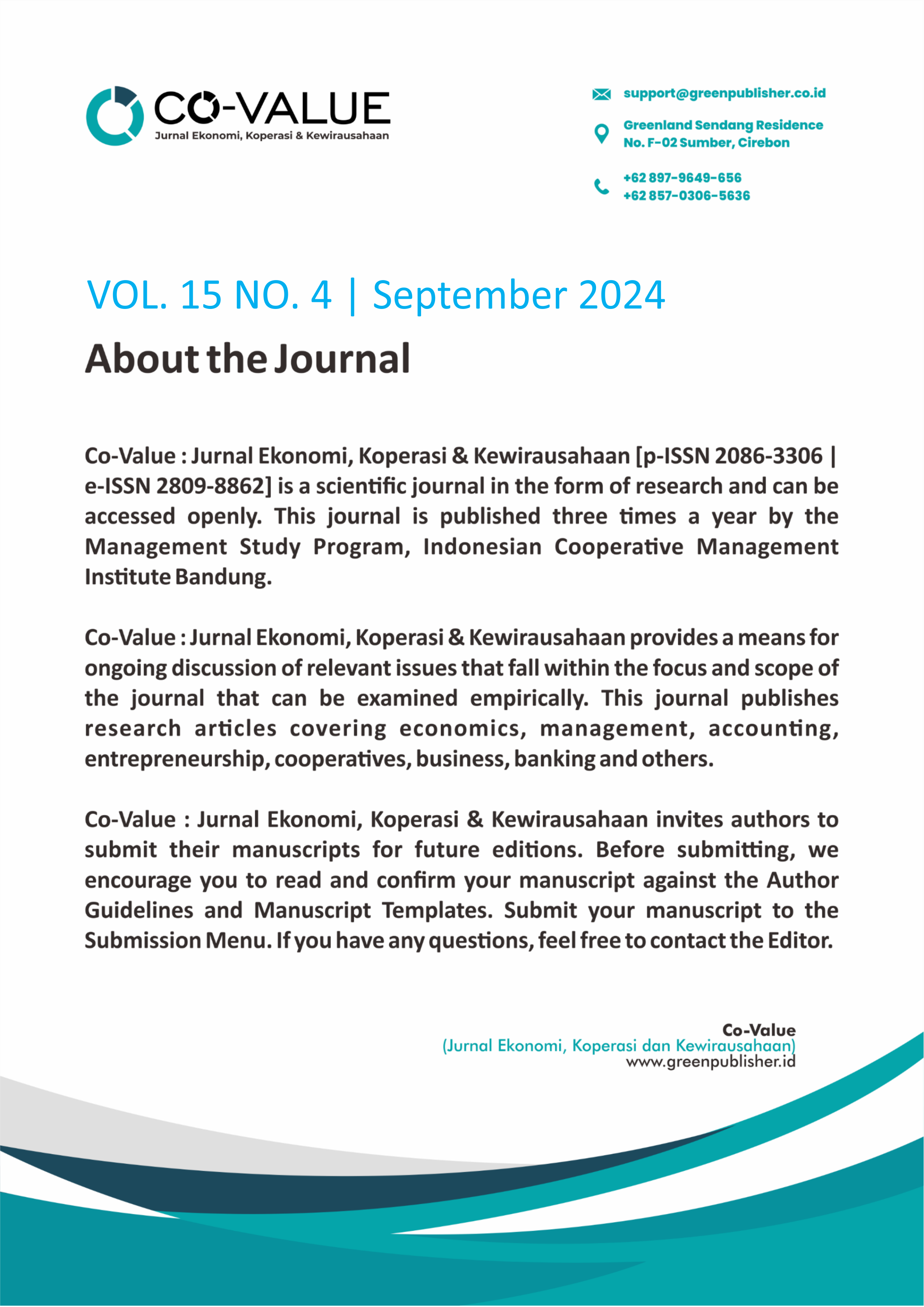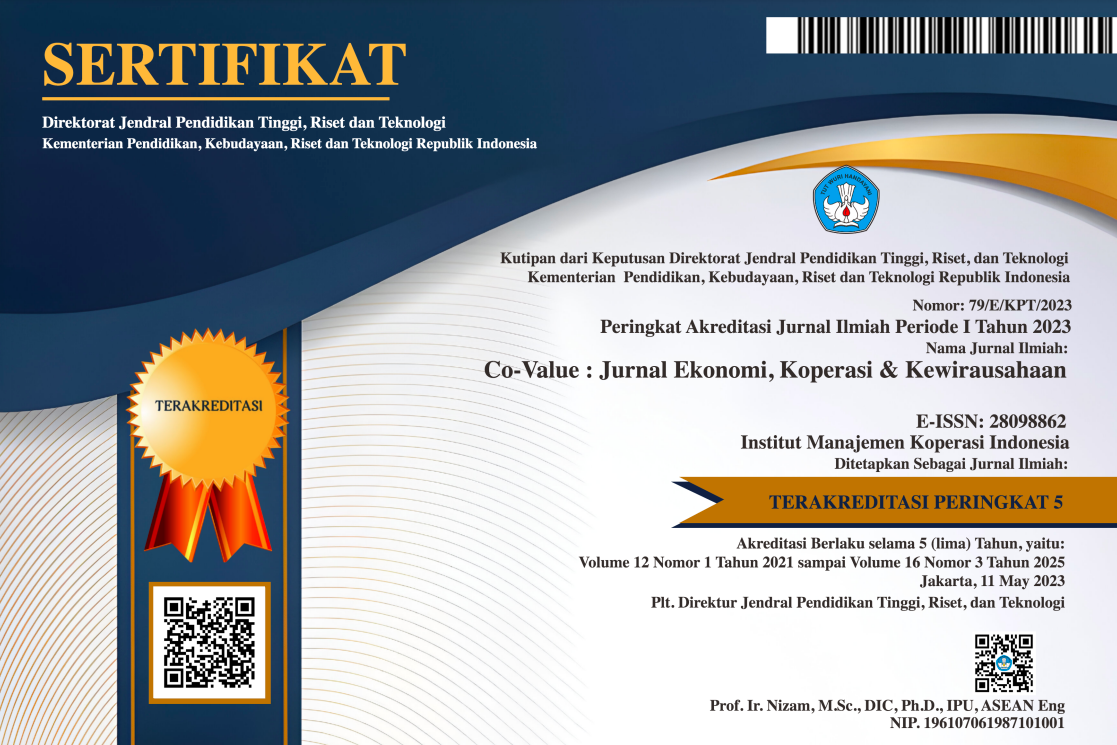Community Empowerment On Sustainable Outdoor Recreation In Pangandaran Tourist Destination
Abstract
This research examines the diverse forms of community involvement in tourism within Pangandaran Regency, highlighting its potential for sustainable development. The region features 270 tourist attractions categorized into cultural, man-made, and natural types, with a significant emphasis on eco- tourism and outdoor recreation opportunities, particularly in the Parigi sub-district. The growing number of restaurants and micro-enterprises reflects the evolving landscape of tourism-related economic activities and underscores the interconnection between the local and tourism industries. Active community participation in various tourism organizations indicates a robust network essential for promoting tourism activities and ensuring local stakeholders play a crucial role in the sector's growth and sustainability. Despite these strengths, the research identifies significant challenges related to infrastructure development, environmental sustainability, and community engagement. Overcrowding during peak seasons places pressure on local facilities, while a lack of awareness about sustainable tourism practices among residents hampers effective participation. Enhancing community education on eco-friendly practices and establishing collaborative frameworks among stakeholders is essential to cultivating a sustainable tourism ecosystem. By addressing these challenges and leveraging community strengths, Pangandaran can foster a tourism landscape that generates economic benefits while preserving its rich cultural and natural heritage. Promoting sustainable practices and fostering a sense of shared responsibility among residents will be crucial for ensuring the long-term viability and success of tourism in the region.
References
Acharya, S. (2023). Tourism as a Tool of Women Empowerment: A General Review. Research Nepal Journal of Development Studies, 6(1), 101–106. https://doi.org/10.3126/rnjds.v6i1.58928
Antariksa, B., Rusata, T., Andriani, D., & Priyatmoko, R. (2022). Quality Tourism in the Emergence of Revenge Travel: A Post-pandemic Policy Framework. In Proceedings of the International Academic Conference on Tourism (INTACT) "Post Pandemic Tourism: Trends and Future Directions" (INTACT 2022) (pp. 189–201). Atlantis Press SARL. https://doi.org/10.2991/978-2- 494069-73-2_14
Atik, M., Sayan, S., Karaguzel, O., & Yldrm, E. (2012). Trail Impact Management Related to Vegetation Response in Termessos National Park, in Turkish Mediterranean. In Perspectives on Nature Conservation - Patterns, Pressures and Prospects. InTech. https://doi.org/10.5772/31293
Babatunde, J. (2024). Outdoor Recreation and Environmental Conservation. International Journal of Arts, Recreation and Sports, 3(1), 15–17. https://doi.org/10.47941/ijars.1787
Beery, T., Olsson, M. R., & Vitestam, M. (2021). Covid-19 and outdoor recreation management: Increased participation, connection to nature, and a look to climate adaptation. Journal of Outdoor Recreation and Tourism, 36, 100457. https://doi.org/10.1016/j.jort.2021.100457
Buckley, R. (2011). Adventure Tourism Management. Routledge. https://doi.org/10.4324/9781856178358
Buckley, R. (2012). Sustainable tourism: Research and reality. Annals of Tourism Research, 39(2), 528–
https://doi.org/10.1016/j.annals.2012.02.003
Colley, K., Currie, M., & Irvine, K. N. (2023). Outdoor recreation and the well-being of rural residents. In Rural quality of life. Manchester University Press. https://doi.org/10.7765/9781526161642.00036
Creswell, W. J., & Creswell, J. D. (2018). Research Design: Qualitative, Quantitative and Mixed Methods Approaches (5th ed.). Sage Publications Inc.
Dinas Koperasi, Usaha Kecil dan Menengah, P. dan P. K. P. (2024). Jumlah Usaha Mikro dan Kecil di Kabupaten Pangandaran. Open Data Pangandaran. https://opendata.pangandarankab.go.id/dataset/jumlah-usaha-mikro-dan-kecil-di-kabupaten-pangandaran
Dinas Pariwisata dan Kebudayaan Kabupaten Pangandaran. (2022). Jumlah Anggota Berdasarkan Asosiasi Usaha Wisata. Open Data Pangandaran. https://opendata.pangandarankab.go.id/dataset/jumlah-anggota-berdasarkan-asosiasi-usaha-wisata
Dong, Y., Schänzel, H., & Liu, C. (2023). Chinese Family Dynamics within RV Drive Tourism in Quaran-cation: Development of a Conceptual Framework in/post COVID-19 Tourism (pp. 205– 224). https://doi.org/10.37307/b.978-3-503-21195-1.12
Fennell, D. A., & Bowyer, E. (2020). Tourism and sustainable transformation: a discussion and application to tourism food consumption. Tourism Recreation Research, 45(1), 119–131. https://doi.org/10.1080/02508281.2019.1694757
Fong, S.-F., & Lo, M.-C. (2015). Community involvement and sustainable rural tourism development: perspectives from the local communities. European Journal of Tourism Research, 11, 125–146. https://doi.org/10.54055/ejtr.v11i.198
Han, G.-S. (2023). Relationships between Outdoor Recreation-Associated Flow, Pro-Environmental Attitude, and Pro-Environmental Behavioral Intention. Sustainability, 15(13), 10581. https://doi.org/10.3390/su151310581
Irawan, N., & Nara, V. (2020). Managing Women Empowerment Through Participation In Sustainable Tourism Development In Kampong Phluk, Siem Reap, Cambodia. International Journal of Economics, Business and Accounting Research (IJEBAR), 4(02). https://doi.org/10.29040/ijebar.v4i02.1053
Jackson, S. B., Stevenson, K. T., Larson, L. R., Peterson, M. N., & Seekamp, E. (2021). Outdoor Activity Participation Improves Adolescents' Mental Health and Well-Being during the COVID- 19 Pandemic. International Journal of Environmental Research and Public Health, 18(5), 2506. https://doi.org/10.3390/ijerph18052506
Khalid, S., Ahmad, M. S., Ramayah, T., Hwang, J., & Kim, I. (2019). Community Empowerment and Sustainable Tourism Development: The Mediating Role of Community Support for Tourism. Sustainability, 11(22), 6248. https://doi.org/10.3390/su11226248
Kijima, K., Novani, S., Rasyid, I., & Nuraeni, S. (2024). The Exploration of Entrepreneurial Activities and Innovation in Pangandaran Tourism Area, West Java, Indonesia: Service Science Perspective (pp. 71–86). https://doi.org/10.1007/978-981-97-5219-5_4
Kuntariningsih, A., Risyanti, Y. D., Supriyanto, S., & Soehari, H. (2023). Community Empowerment Model Through Village Intitutions To Organize Events. International Conference On Digital Advance Tourism, Management And Technology, 1(1), 631–638. https://doi.org/10.56910/ictmt.v1i1.137
Larson, L. R., Mullenbach, L. E., Browning, M. H. E. M., Rigolon, A., Thomsen, J., Metcalf, E. C., Reigner, N. P., Sharaievska, I., McAnirlin, O., D’Antonio, A., Cloutier, S., Helbich, M., & Labib,
S. M. (2022). Greenspace and park use associated with less emotional distress among college students in the United States during the COVID-19 pandemic. Environmental Research, 204, 112367. https://doi.org/10.1016/j.envres.2021.112367
Manning, R. E., & Anderson, L. E. (2012). Impacts of outdoor recreation. In Managing outdoor recreation: case studies in the National Parks (pp. 10–19). CAB International. https://doi.org/10.1079/9781845939311.0010
Mateer, T. J., Rice, W. L., Taff, B. D., Lawhon, B., Reigner, N., & Newman, P. (2021). Psychosocial Factors Influencing Outdoor Recreation During the COVID-19 Pandemic. Frontiers in Sustainable Cities, 3. https://doi.org/10.3389/frsc.2021.621029
Muresan, I., Oroian, C., Harun, R., Arion, F., Porutiu, A., Chiciudean, G., Todea, A., & Lile, R. (2016). Local Residents' Attitude toward Sustainable Rural Tourism Development. Sustainability, 8(1),
https://doi.org/10.3390/su8010100
Nijman, V. (2022). Primate Tourism on Java: 40 Years of Ebony Langur Viewing in Pangandaran from Homestay Visits to Mass Tourism (pp. 179–197). https://doi.org/10.1007/978-3-031-14919-1_9
Nunkoo, R., & So, K. K. F. (2016). Residents' Support for Tourism. Journal of Travel Research, 55(7), 847–861. https://doi.org/10.1177/0047287515592972
Rice, W. L., Mateer, T. J., Reigner, N., Newman, P., Lawhon, B., & Taff, B. D. (2020). Changes in recreational behaviors of outdoor enthusiasts during the COVID-19 pandemic: analysis across urban and rural communities. Journal of Urban Ecology, 6(1). https://doi.org/10.1093/jue/juaa020
Scheyvens, R. (1999). Ecotourism and the empowerment of local communities. Tourism Management, 20(2), 245–249. https://doi.org/10.1016/S0261-5177(98)00069-7
Sulyanati, & Nasihuddin, A. A. (2023). Legal Reformulation of Coastal Lines Use with the Role of the Private Sector in Equitable Tourism. Proceedings of the 3rd International Conference on Law, Governance, and Social Justice (ICoLGaS 2023), 939–949. https://doi.org/10.2991/978-2-38476- 164-7_87
Sumetri, N. W., Astawa, I. P. M., Wahyuni, L. M., & Rumini, N. L. P. I. (2022). Governance Model for Inclusive Tourism Village Development in Klungkung Regency. In Proceedings of the International Conference on Applied Science and Technology on Social Science 2022 (iCAST-SS 2022) (pp. 602–608). Atlantis Press SARL. https://doi.org/10.2991/978-2-494069-83-1_105
Thomas, M. O., & Thomas, C. H. (2022). From Urban Places to Outdoor Spaces: Field-Tested Practices for Engaging BIPOC Youth and Diversifying Outdoor Recreation. Frontiers in Communication,
https://doi.org/10.3389/fcomm.2021.736252
Winter, P. L., Crano, W. D., Basáñez, T., & Lamb, C. S. (2019). Equity in Access to Outdoor Recreation—Informing a Sustainable Future. Sustainability, 12(1), 124. https://doi.org/10.3390/su12010124
Winter, P. L., Selin, S., Cerveny, L., & Bricker, K. (2019). Outdoor Recreation, Nature-Based Tourism, and Sustainability. Sustainability, 12(1), 81. https://doi.org/10.3390/su12010081
Xing, Y., & Dangerfield, B. (2018). Modelling the Sustainability of Mass Tourism in Island Tourist Economies. In System Dynamics (pp. 303–327). Palgrave Macmillan UK. https://doi.org/10.1057/978-1-349-95257-1_10
Zimmerman, M. A. (2000). Empowerment theory: Psychological, organizational and community levels of analysis.






